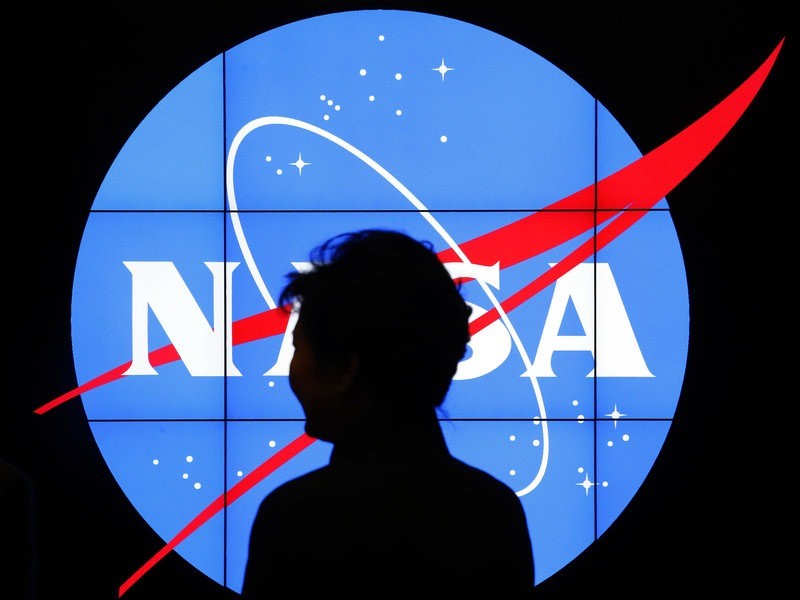In 2020, the global space economy rose to a value of $447 billion. That number represented a 4.4% growth since 2019 and a 55% jump since 2010. Today, it continues to soar.
- Improvements in Healthcare
- Satellite Data and Disaster Preparedness
- Monitoring Environmental Issues
- Spurring Product Innovation
- GPS Navigation Technology
- Embarking on New Discoveries
- Expanding the Scientific Job Force
- Broadened Cultural Insights
- Forging Partnerships Among Countries
- The Widespread Reach of Space Discovery
While space discovery is big business, much of it can seem like jargon taken right out of The Jetsons. Yet, did you know there are very real and tangible benefits to researching and learning as much as possible about what lies beyond the sky?
Today, we’re sharing several big ways that space exploration out there can benefit our lives, right here.
Improvements in Healthcare
As astronauts prepare for a space flight and eventually take off, their bodies go through a range of physical and emotional changes. By studying what happens to them as they leave Earth’s center of gravity, scientists and healthcare workers can better understand the intricate networks of cells and systems inside all of us.
Specifically, much of their research is based on studying the effects of these conditions:
- Radiation
- Isolation
- Microgravity
They can perform science experiments on these astronauts to understand what physically happens to them, and how it relates to other medical conditions here on Earth. For instance, many of the symptoms they experience mimic those that occur to Earth-bound humans who live a sedentary lifestyle or are aging.
In addition, researchers have also gathered data in space that’s allowed them to make advancements that change the way they identify and treat a variety of medical issues, including:
- Cardiovascular disease
- Osteoporosis
- Type 2 diabetes
- Imbalance and mobility conditions
They can also use these insights to widen the scope of surgical technologies implemented in hospitals around the world. The microtechnologies required to power some space robots can be used to create advanced surgical instruments that are capable of performing more precise and intricate surgeries that weren’t possible before.
Satellite Data and Disaster Preparedness
When asking, “What is space exploration?”, much of the answer centers on the field of satellite technology. Space scientists use satellites to gather information about different planets, moons, and solar systems.
The first satellite sent into space was Sputnik 1, which the USSR launched on October 4, 1957. Since then, thousands more have joined the race. These satellites deliver up-close and personal insights into areas that would otherwise be impossible to reach.
We can now use the same techniques to gather critical data on a variety of operations, including:
- Navigation
- Communication
- Weather conditions
Staying up-to-date on the weather can help us predict and plan around impending natural disasters, such as hurricanes, floods, and earthquakes. With the advanced notice that satellites provide, rescue crews can assemble ahead of the event and assist those in its direct path through the evacuation process.
In fact, many emergency response teams deploy space technologies to not only prevent such disasters but also support their relief. Emergency workers can take satellite images of areas that have been badly hit by the disaster to understand the exact location of the distressed area, as well as its scope and severity.
Access to this reliable information can help those workers save lives and limit property damage through prompt response. Teams can also use satellite technology to detect emergency beacons sent by persons in distress, such as lost backpackers.
Monitoring Environmental Issues
In our own homes and lives, it can be difficult to grasp just how huge issues like climate change really are. Yet, it’s much easier to understand when you’re looking down on Earth from hundreds of miles away.
For this reason, astronauts are helping to make major breakthroughs in the field of environmental protection. Not only can satellites take unique images of issues such as the Arctic Sea Ice Crisis, but they can also provide critical information on how those conditions are shifting and changing on a regular basis.
They can also take measurements that reveal the varying effects of water, soil, and air pollution on our planet. For example, satellites can identify oil spills, measure ozone layer depletion, and even provide insight into a region’s biodiversity. Armed with this knowledge, stakeholders can make decisions to protect the Earth, including the animals and humans that live inside it.
Spurring Product Innovation
There’s a good chance that many of the household products you use on a regular basis have their roots in space exploration. Most of these products were the direct byproduct of space research, where scientists work around the clock to create sleek technologies to drive innovation.
For instance, do you run an air purifier in your house? If so, then you have the International Space Station (ISS) to thank. Ethylene scrubbers developed to purify the air at the ISS were also found to work on Earth, revolutionizing the clarity and quality of the indoor air we breathe.
You can also thank a space scientist if you love lying down on your memory foam mattress at night! This flexible, cushy material was first invented as a way to keep test pilots safe and comfortable during their flights.
These are only two examples of the myriad products that have their roots high in the sky. Other notable ones include artificial limbs, insulin pumps, scratch-resistant lenses, LASIK eye surgery, invisible braces, and more.
GPS Navigation Technology
How many of us still print out hard-copy maps when we’re trying to get somewhere? The answer is very few. Now, we just pull up one of the many map apps on our phones!
We take for granted the advanced global positioning system (GPS) that powers this technology. Again, this service was first designed for and by astronauts, who use navigation satellites to control a variety of functions, including:
- Launch tracking
- Real-time onboard directions
- Time synchronization
- Altitude control
It’s those same satellites that tell you where to turn left, and where to stop. They can be used from space and within space, and astronauts are continuing to find more applications for them.
Embarking on New Discoveries
Without space exploration, how would we know what’s actually out there? As we launch telescopes, rovers, and space probes, we can collect data that gives us new insights into the universe.
Then, we can use those insights to drive new changes across almost every industry. From recycling and waste management to transportation and engineering, experts in every field can leverage space technology to make their products and services sleeker, faster, and more efficient.
Expanding the Scientific Job Force
We can’t provide a space discovery guide without talking about all of the jobs that the space exploration industry has created. In the United States, total private-sector space employment equaled 147,953 in 2021, which was the highest number since 2011.
Astronauts in space suits aren’t the only people who work in this sector. There will always be a need for people who can provide the mission-critical, behind-the-scenes work that goes into a rocket launch. These include:
- Space scientists
- Geo scientists
- Aerospace engineers
- Mechanical engineers
- Robotics engineers
- Electricians
- Guided-missile manufacturers
- Space vehicle manufacturers
- Broadcast and wireless communication providers
These jobs add immeasurable value to our economy, as proven earlier. This industry is worth nearly $450 billion, and these careers are a big reason why.
Another exciting aspect of this growth is that it’s encouraging more young people to take an interest in Science, Technology, Engineering, Art, and Math (STEAM) careers! Facilities like help bring STEAM concepts to life in exciting, hands-on ways, motivating adult learners and young minds alike.
Broadened Cultural Insights
Less specifically, space exploration also helps broaden our cultural scope. As we marvel at these discoveries, we’re reminded of just how small we actually are. It piques our curiosity and encourages us to ask questions like:
- Just how big is the Universe?
- What is Earth’s role in it?
- Is there life outside of Earth?
- Is our planet unique or are there others out there?
Many of these questions are mind-bending and we’re still working to discover the answers. Still, they can open an honest and intriguing dialogue around the role of mankind and our place in the world. This leads to intangible benefits that enrich our culture and inspire the citizens within it.
Forging Partnerships Among Countries
Space exploration also allows countries the opportunities to build partnerships with one another in a shared quest to learn more about what lies within all that vastness.
The ISS alone combines 15 nations, including the United States, Russia, and the 22 member states within the European Space Agency (ESA), which includes France, Germany, Italy, and Switzerland, among others.
Despite their differences, all of these countries and states can work together to further the field of space discovery. They plan space flight missions and send astronauts from their respective nations into space to collaborate on world-class research.
The Widespread Reach of Space Discovery
When you look up at the stars, it can be hard to wrap your head around how immense the universe is. Yet, you can get a small-scale feel for it when you search for directions on your smartphone or plug in the air purifier at your house.
Space discovery is everywhere as long as you know where to look. From the products we use to the services that keep us safe, it has a starring role in our lives, whether we realize it or not.
Looking for more techie guides? Check out our Tech and Autos section!














